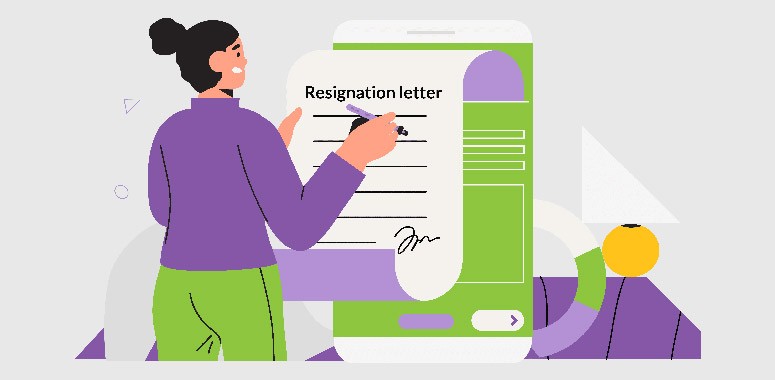Ten Smart Ways to Resign From Your Job
There will be a point in your career when you will need to resign from your current position. There might be various reasons attached to your resigning, but there is a need to leave in a professional manner. Resigning on a positive note can also help create a better path for you in your future endeavors. Resigning is not just an act of leaving work, but it is a stipulated process that is in your contract when you were employed. The main aim of a resignation is to formalize the end point of your employment with the organization or company so everyone can push forward to achieve better things. Whether you find yourself having issues with your present employer or you seem to have gotten a better offer, resignation is a way of ending things in a professional manner in your career and the beginning of a new one. In this article, we will be discussing ten smart ways to resign from your job.
Ways To Resign From Your Job

There can be various reasons behind your decision to resign, and these can range from low pay to an inadequate working environment. It is quite normal to change career positions as long as this is done in a professional and amicable manner. Determine if the reasons for your resignation can be resolved or if it is actually worth it. Discuss your situation with your employer or the HR department and see if changes can be made. Below are some of the smartest ways to resign from your job.
Ensure that all details are confirmed with your new employer

In situations where you find yourself leaving due to the fact that you got a better offer from your current position, ensure that all the necessary details are confirmed and finalized with your new employer. Ascertain that you have responded duly to an offer letter and that a starting date has been communicated to you. With this, you are able to avoid unnecessary gaps in employment and ensure that the new position awaits you upon leaving your current job.
Ensure a transition plan is put in place for your current team

While planning your resignation, it is highly important that you work on a plan to transition your roles and duties to other coworkers. Put together a list of objectives and figure out which one works best for each teammate. Ensure that you offer advice and help to teammates who might need help with certain complex software or directions due to the fact that they are untrained for the task. Although a plan might be in place already by your manager, it is still important that you provide your own as it helps prepare them better.
Tender a formal resignation letter

Another smart way to resign from your job is by writing an appropriate resignation letter. This should express your appreciation for the chance you were given in the company or organization. In the resignation letter, ensure that you input the exact date of your last job in the office and keep your tone as calm and professional as possible. If a transition plan has been created, attach a copy to your resignation letter and explain it fully. With this, the company is able to adjust and move forward quickly after you leave.
Inform your manager first

Let your manager be the first person you inform about your plans to resign. With this information, your manager can quickly start making arrangements for your resignation. Make an appointment to meet with them to submit your letter and clear the air about the whole situation. By informing your manager first, you get the chance to pitch your transition plans, as this makes it easier for your manager to do his job properly. Without informing your manager first, there can be drawbacks to the smooth running of the company after you leave. So, to avoid such situations, ensure you quickly inform your manager.
Resign with your resignation letter in person

Instead of mailing your resignation letter, it is much better to do so in person. While making the necessary arrangements to meet with your manager in private, have it in mind to also drop your letter, as this is a more professional approach to it. In cases where your manager inquires about your reason for leaving, try to provide a simple, honest, and brief answer. Then your manager can now offer a better deal than your new job offer.
Offer adequate notice

While preparing your resignation letter, ensure that you offer adequate notice of when you will be leaving. The generally accepted timeframe to give is two weeks from when you are leaving. However, certain positions may require you to provide more time prior to your departure due to the duties attached to the position. Therefore, it is essential that you put this into consideration while planning your resignation.
Clear out personal items from your office

Ensure that after you have notified your manager and teammates, you start clearing out your space of your personal belongings before leaving. Notifying others first will help prevent confusion that might occur amongst coworkers upon seeing your pack. Examine all desk drawers and other storage areas to ensure that you are not leaving anything behind. This will also save you the stress of having to purchase new items.
Prepare for an exit interview

Certain jobs require employees to take an exit interview as part of their resignation procedure. This interview is mostly conducted by a member of the HR department or the direct manager. Ensure that you see it as a regular interview by dressing appropriately and preparing answers ahead of the interview. While taking an exit interview, one of the questions you will be asked is about the period you spent in the company or organization and ways in which it could have been a lot better. Try to be as professional as possible with your answers and let your focus be on the positive parts of the job.
Ask for a reference

During your last days at the office, you can ask your co-workers or manager about being your reference for your new job. In situations where you are leaving on a positive note, then you should have no problem getting their references. Ensure that the conversation is polite and begins with how you appreciate the experience you got from working together. A reference from a direct manager is quite valuable for any job application, especially if you are lucky enough to have a letter of recommendation attached.
Stay in touch

If you are not lucky enough to get a reference from either your direct manager or coworkers, you should still stay in touch with them. Even after you leave, keep in touch with some of them because they could be valuable assets to you later. You might even want to be employed in the same company. With a recommendation from your previous manager, you can be sure to be in good standing back at work without stress.
Conclusion
By following the various ways listed in this article, you can be sure to have a smooth resignation process. While planning to leave, ensure you schedule your meeting as soon as possible, express gratitude to all those you work with, identify pending tasks, and provide ways to solve them before departing.






